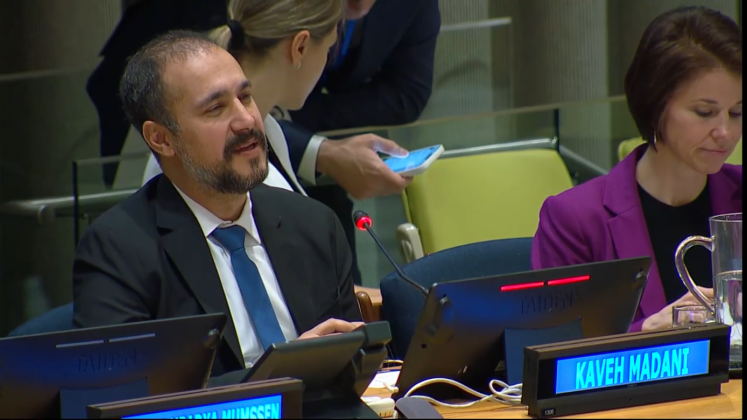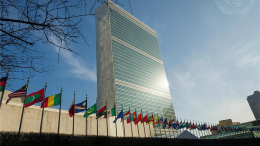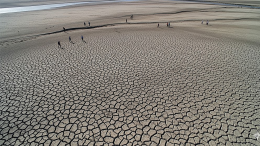New York, 21 March 2025 – The United Nations University Institute for Water, Environment and Health (UNU-INWEH) joined global partners in celebrating World Water Day 2025 and the inaugural World Day for Glaciers at a high-level event held at the United Nations Headquarters in New York. The event, organized as part of the International Year of Glaciers’ Preservation 2025, brought together UN leaders, government officials, scientists, and climate experts to address the urgent challenges posed by glacier retreat and its implications for water security.
The joint observance of World Water Day and the first-ever World Day for Glaciers highlighted the interconnected challenges of climate change, glacier loss, and water availability. Discussions focused on the state of the world’s glaciers and the far-reaching consequences of a melting cryosphere on global water resources, food security, and energy systems.
The event was co-sponsored by UNU-INWEH and Barbados, Canada, Peru, Senegal, Singapore, Tajikistan, Switzerland, United Arab Emirates as well as UNESCO, WMO, UNDESA, UNDP, UNDRR, UN-Water, IAEA along with IUCN.
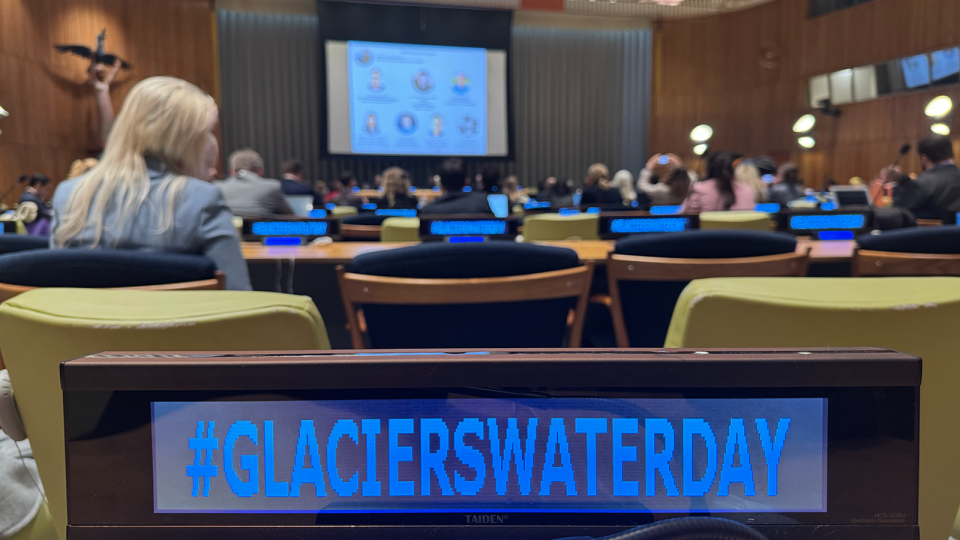
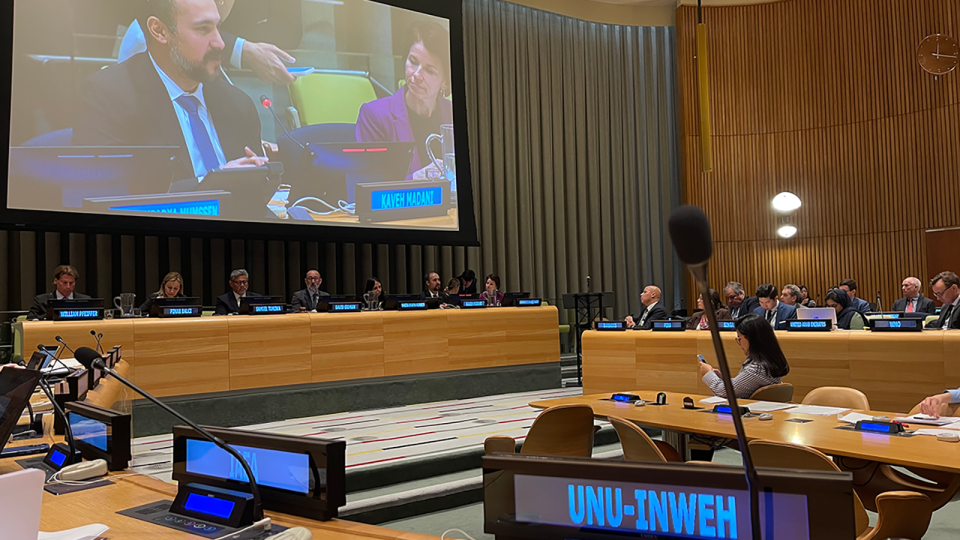
H.E. Mr. Jonibek Hikmat, Permanent Representative of the Republic of Tajikistan to the United Nations, moderated the high-level opening session, which featured remarks from H.E. Mr. Sirojiddin Muhriddin, Minister of Foreign Affairs of Tajikistan, and H.E. Mr. Robert Rae, President of the United Nations Economic and Social Council (ECOSOC) and the Ambassador and Permanent Representative of Canada to the United Nations in New York.
Minister Muhriddin underscored the critical role of glaciers as a primary source of freshwater for millions of people, particularly in Central Asia. “Water scarcity threatens health, development, and stability, yet safeguarding water resources offers hope for a resilient future. Preserving glaciers is not just an environmental necessity—it is a moral obligation. It is a matter of justice, resilience, and survival, ensuring that future generations inherit a world where water is abundant, ecosystems thrive, and communities prosper.”
“We all need to understand that glacier loss affects the entire planet,” said Ambassador Rae. “Glaciers are disappearing at an unprecedented rate, threatening the water resources that nearly 2 billion people around the world rely on. Rapid warming is unraveling this precious resource, and this disruption endangers livelihoods, biodiversity, and entire landscapes worldwide.”
Professor Kaveh Madani, Director of UNU-INWEH, contributed to the World Water Day panel, emphasizing the critical link between glacier preservation and water governance. “We often discuss the impacts of climate change on water and glaciers, but we must also consider the reverse—the impact that glacier loss will have on climate change itself. This creates a reinforcing loop that is often overlooked,” said Prof. Madani. “These and other disruptions will lead to a new equilibrium—one that neither humans nor nature have experienced before—posing unprecedented institutional challenges.” He highlighted the urgent need for integrated strategies to mitigate water insecurity caused by glacier loss and stressed the importance of scientific advancements in cryosphere research and climate adaptation to strengthen global water governance.
The event also served as the platform for the launch of the United Nations World Water Development Report 2025, offering key insights and policy recommendations to advance international cooperation on water security. Participants engaged in dialogues aimed at raising awareness of the accelerating retreat of glaciers and identifying solutions to address the water crises linked to climate change.
Watch the full session, including the expert panel discussions on World Day for Glaciers & World Water Day 2025 Celebration on UN Web TV.
Media Contact:
Sogol Jafarzadeh
UN and Government Relations Coordinator, UNU-INWEH
sogol.jafarzadeh@unu.edu

